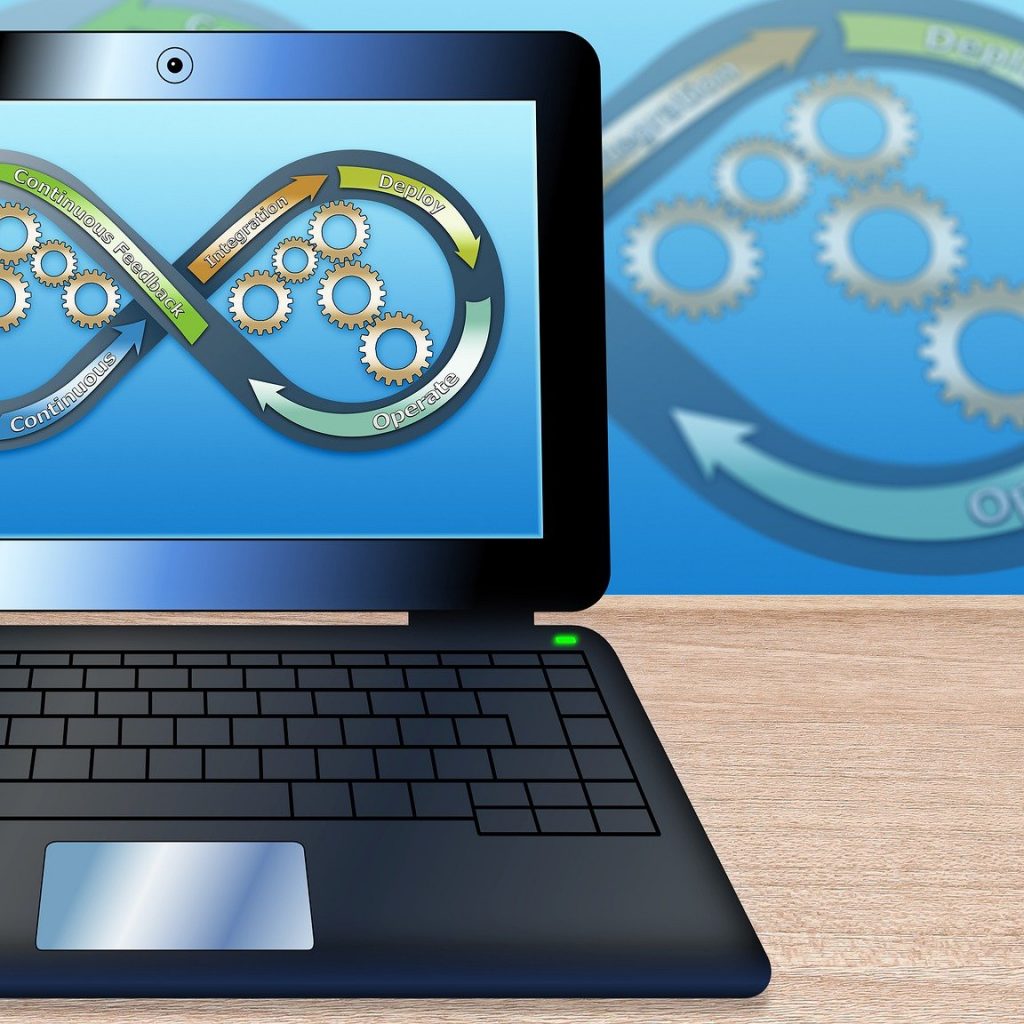DEVOPS
What Is DevOps?
In a nutshell, DevOps is a combination of tools, practices, and processes designed to deliver online services and web & mobile applications with high efficiency & agility.
Most organizations have different teams working on the same project, but on different processes simultaneously; some of these can be automated & some manual. Even with automation in place, with different scripts being developed by different teams using different technologies, there arises a need to streamline all of these activities in a more defined, controlled & systematic manner – the answer to which is DevOps.

Why DevOps?
- Do you have short-term (daily/weekly/monthly) deliverables to customers?
- Do your developers have to wait for a long time to receive feedback on their fix from the QA team?
- Does your QA team often identify a bug, but it appears to be non-reproducible in the development team’s environment?
- Is it difficult for you to keep track of configurations & change points in different environments?
- Are you facing bottlenecks in infrastructure management?
- Are you struggling to manage code branches, and identifying & merging release candidates?
- Is it taking over 10 minutes for you to identify any service disruption or outage, or over a few hours to implement critical fixes?
- Has it become challenging for you to keep up with adopting changing technologies? These include microservices, serverless, containers, VMs & more.
How to Implement DevOps?
1. DevOps Assessment
- How much time will it take for a new release, and what is the quality of this release?
- What is the turnaround time needed for critical bugs?
- How do you handle failures?
- What is the level of security of your network, data & servers?
- What are the SLAs you must meet for business continuity, data loss, service availability, disaster recovery, and more?
- What is your budget for your company’s cloud infrastructure?
2. Adapting to DevOps:
This assessment will enable the VDA team to come up with your organization’s DevOps Maturity Score. This will tell us how well you are doing, where there is scope for improvement, and areas where improvement is a MUST. Our DevOps experts will help you accordingly.
The VDA team will help you adopt DevOps best practices, such as the following functional areas of DevOps:
Building CI/CD pipeline:
CI refers to your code being built daily & daily unit testing, so that developers can immediately identify what has been broken. CD refers to continuous deployment & delivery, which will ensure that you have production-ready builds, with minimal or no intervention. As CD can be a challenging task, it must be done correctly, as one can incur enormous penalty in case of mistakes.
Infrastructure Provisioning:
This ensures the automation of the complete on-premise or cloud infrastructure from scratch to reduce cost, effort, as well as time. This is mostly applicable in case of QA & Dev environments.
Configuration Management:
You will be able to deploy your applications in a predictable and controlled manner once your infrastructure (Network, Storage, VMs, etc.) is set up correctly. With the help of configuration management, you will be able to set up repeatable & consistent environments.
Logging and Monitoring:
Monitoring tools like New Relic, Zabbix, Nagios, Splunk, ELK, etc. will help you monitor the health of your infrastructure (Network, Hosts), usage, application performance, security breaches, attacks, services, usage & more, while your services & application are running in production.
Other:
Other than the above-mentioned essential areas, your organization will also benefit from DevOps for disaster recovery, data backups, vulnerability scanning, intrusion indication, compliance checks & other activities that your business is engaged in to run efficiently and to meet SLAs.
Implementing all of the methodologies listed above is not difficult, however, you need to do it right. Book a call with us today to assess & implement DevOps solutions for your business.
3. Maintenance of DevOps:
- Can I reduce CI/CD time even further?
- Can I further reduce my Dev/QA/Staging/Production environments costs?
- Are there free open-source tools available to replace ones with high license costs?
- Are there any new powerful tools that can replace existing ones?
- Is it possible to reuse the current DevOps pipeline to create new products?
As you can see, DevOps covers nearly all phases of Software Delivery. We will help you identify what is critical for your business based on your current challenges & bottlenecks.
In case you have any queries related to How to DevOps, feel free to book a discovery call with us today!
Our Services



